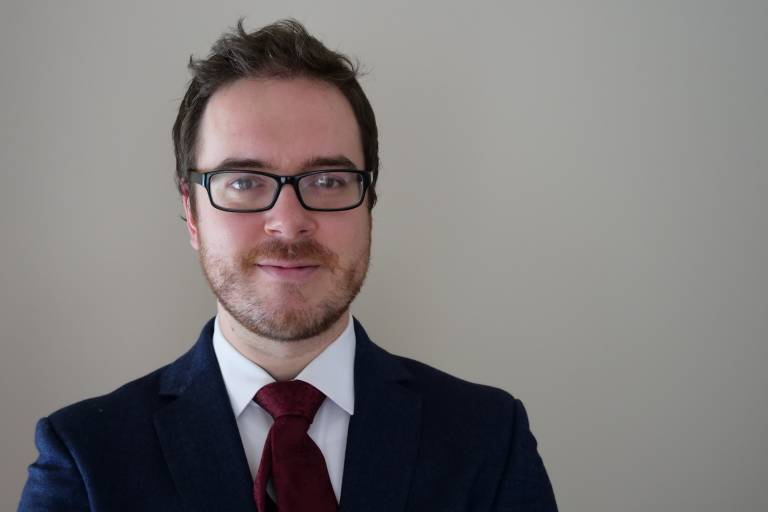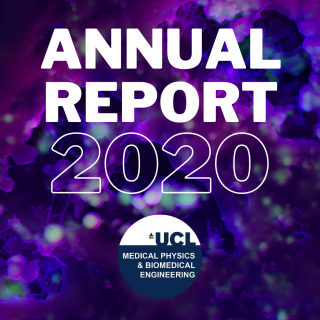Charles-Antoine Collins Fekete awarded UKRI Future Leaders Fellowship
15 October 2020
A research fellow at UCL Medical Physics & Biomedical Engineering is one of the UK Research Institute’s (UKRI) most recent recipients of the prestigious Future Leaders Fellowship.

Charles-Antoine Collins Fekete’s research in medical physics specialises in the field of ion radiography and outcome prediction, working broadly on imaging technology and reconstruction algorithm, with applications specifically in the treatment of lung cancer. Based at UCL Medical Physics & Biomedical Engineering, Charles is also part of Cancer Research UK RadNet City of London. We spoke to Charles about his research plans, improving clinical processes and lives of lung cancer patients, and navigating the field as an early career researcher during a time of unpredictable changes.
What does being awarded the UKRI Future Leaders Fellowship mean for you?
I feel honoured to be given the chance to pursue my research vision with the UKRI Future Leaders Fellowship, and I am looking forward to building my team and developing the future of lung cancer outcome prediction. This fellowship gives me the unique opportunity to establish myself as a leader in my field, collaborate with key stakeholders, bring my innovations to the clinical reality and improve the lives of lung cancer patients.
Can you tell us about the research you’ll be undertaking with this fellowship award, and what you hope its impact might be?
My research will develop the field of explainable artificial intelligence for lung cancer. My long-term goal is two-fold: firstly, to assist the clinician in making informed decisions based on improved predictions of the patient’s outcome, and secondly to involve the patient in the clinical decision process. I hope to do so by bringing forward interpretable AI through the use of quantitative multi-modality imaging, thereby bringing personalised and unique patient information in the outcome prediction algorithm. This algorithm will provide both patients and clinicians with state-of-the-art personalised information on the patient conditions and treatment. I firmly believe that patient involvement and engagement is crucial in the treatment to help choose an appropriate clinical pathway.
What research developments do you most hope to see in your field within the next decade?
Artificial intelligence cannot fulfil its promised benefits without substantial developments in the field of interpretability. It is paramount for clinical adoption of AI to steer away from the current black box paradigm, i.e. to provide the clinician with both robust and interpretable predictions to help clinical decisions. This is why I have decided to integrate interpretability as a building block of my research plan.
This year’s pandemic, lockdown and subsequent recession has left the landscape of research funding prospects looking drastically different. How do you navigate that landscape as an early career researcher, and what kind of support have you received?
Although the current pandemic has made the funding situation challenging, it has encouraged us researchers to seek for collaborations and funding beyond the usual network, to reach out to international collaborators. Although the pandemic has kept us away from our usual workspace, it has compelled me and my group to develop a solid methodology and protocol to work from home, while maintaining productivity. This methodology is now used to collaborate with success with many high-profile international groups.
The Department of Medical Physics & Biomedical Engineering and CRUK RadNet City of London are both providing a tremendous level of support for this fellowship, for which I am highly grateful. Specifically, my Department at UCL is offering the mentorship and training necessary to develop as a fellow and cultivate my professional, personal and leadership skills. At the same time, CRUK RadNet has committed substantial resources to help me develop in my research domain, from access to cancer data hubs to specific commitments from clinicians and academic experts.
 Close
Close



